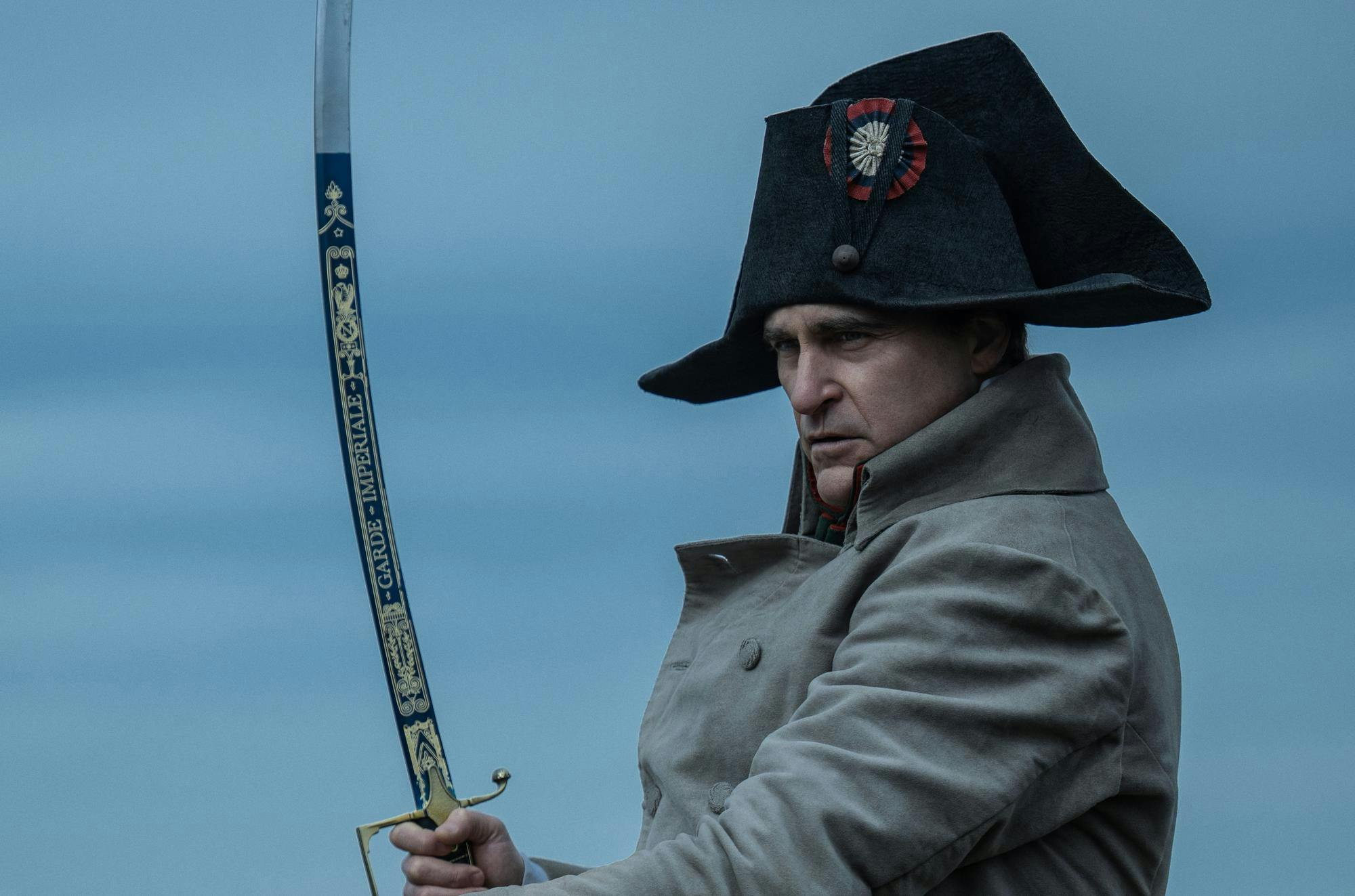“Napoleon” (2023) opens with an idea written in the shades of the French tricolor: “The people are driven by misery into revolution … and brought back to misery by revolution.” This cyclic statement on history is mirrored in the film, which begins with the public and ostentatious beheading of Marie Antoinette and ends with the quiet, whimpering death of Napoleon Bonaparte. The sequences in between depict revolution, battle, death, politics and the intricacies of a tumultuous relationship that carries through the film.
The movie throws the audience into revolution from the first frame. After the spectacle of Marie Antoinette’s execution, the lens turns to the behind-the-scenes of military planning. What follows is a gory, dramatic and harrowing depiction of the Siege of Toulon which serves as the introduction to Napoleon’s military and strategic strength. The battles in the movie are well executed and depict horrific moments that linger long after the actual battles end. Beyond the battles, though, one of the defining features of the film is the relationship between Napoleon Bonaparte (Joaquin Phoenix) and his first wife, Joséphine (Vanessa Kirby). Phoenix’s Napoleon is a glory-hunting, petulant, egoistic and easily despised character. He is a tormented lover from the second Kirby enters the screen and the power play between the two is an interesting dynamic to engage with.
The dynamic of Joséphine and Napoleon’s relationship is a parallel plotline to the coverage of the battles. There are several voiceovers throughout the movie, where Napoleon is unrelentingly devoted to Joséphine in his letters. The written confessions contain a charisma that is not seen in the actual interactions between the characters and their relationship seems largely one-sided until after the two divorce. Kirby delivers a keen performance of a woman seeking power and status, which is likely Joséphine’s primary attraction to Napoleon in the movie. In many ways, her character is a more restrained and powerless version of Napoleon’s.
It seems inevitable that the intense performances of Kirby and Phoenix become the defining moments of the over 2 ½ hour feature. As with any Ridley Scott film, there are moments of stand-out action that capture the audience; few cinema moments are as haunting as cannons being fired directly at a rampaging but unarmed public or bodies sinking into ice at the Battle of Austerlitz. Napoleon Bonaparte led 60 battles in his military career. The reason Napoleon, as a character, is scattered throughout literature, media and cinema is perhaps that he lost only seven of them.
As such, the moments of humor in the film become all the more distinct and unexpected. A film that many would expect to be filled with tragedy in every second has moments where the entire theater chuckled. Phoenix bellowing, “You think you’re so great just because you have boats!” is delightfully disparate from his military campaign and brings the audience to laugh out loud. Nevertheless, Napoleon is despotic in the movie. He crowns himself emperor, a moment that defines his political character. Phoenix depicts Napoleon’s character as swinging back and forth between tyrannical arrogance and a small man demanding attention.
It is hard to determine exactly what the film is trying to demonstrate. Napoleon’s character, though engaging and interesting, doesn’t develop as the plotlines move ahead. Although his position in society changes dramatically, his character remains the same. His final words, “France … Army … Joséphine,” likely summarize his mettle and motives more succinctly than the movie manages.
A distinct feature of the film that stays in mind even when the credits roll are the chicken scratch headings that distinguish the chronology. Each historic moment comes with a death toll, recorded and displayed to the viewers in yellow font with the sound of fountain pen on paper. Before the credits roll, the audience is confronted with the astounding death tolls of each of Napoleon’s most famous battles. That, and the staggering factoid that 3 million people died in Napoleon’s 60 battles. This sobering reflection is perhaps the central message of the movie, rather than the grandeur of his military endeavors.






